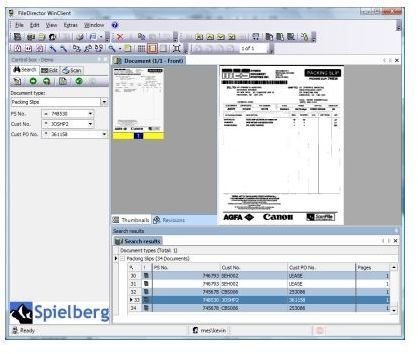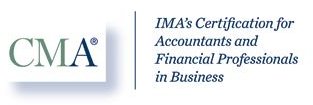Insights on Accounting Career Changes: Know the Basic Skills and Qualities of an Accountant
Statistical and Survey Reports for Accountancy Jobs
In 2008, the Forbes website listed the accountancy profession as the third in their list of recession-proof jobs. This was a time when the number of unemployed Americans reached an all time high of 10.1 million, before the year ended. As a result, some college graduates and other professionals considered making an accounting career change for their major studies or in their occupational fields.
In addition, the Bureau of Labor Statistics reported that about 1.3 million accountants and auditors held on to their jobs for the same year. Changes in reporting policies, tax regulations, and accounting standards likewise contributed to increases in the demand for accountants.
However, in contemplating an accounting career change, one should have a clear perception about an accountant’s job since it may denote several functions. The accountancy profession comprises different roles and it would be best to get insights about each one of them.
First, the individual must ascertain if he or she possesses the general attributes that most successful accountants have in order to succeed in the accountancy field. The following basic skills and qualities are provided as a guide for determining which areas to improve. Take note that all these skills are not in-born talents but can all be developed and improved at will.
The Basic Skills and Qualities of a Good Accountant

Basic Skills
Fundamental Mathematical Aptitude – It is not necessary for an accountant to be a math wizard because most accounting problems make use of the fundamental arithmetic taught from elementary through high school. It also entails an understanding of other math concepts in terms of fractions, percentages, and ratios and the formulas used in their calculations.
Reading Comprehension Skills – In carrying out accounting procedures, the terms debit and credit are used to reflect an increase or decrease; but their application will depend on the nature of the account. Focus your attention on the normal balances of each account in order to comprehend the effect of a debit or credit entry. The accountant has to comprehend when a transaction negatively or positively affects the account balance.

Analytical Skills – Accountants are also tasked to perform financial analysis of growth or decline in terms of ratios, proportion, impact, or rate.
In some instances, there are specific financial issues that require verification, and the accountant or auditor has to perform his or her tasks by taking a reverse accounting route. This would mean working back by following through audit trails from the end points to their origins.
Communication Skills – Accountants are different from bookkeepers, since they will be tasked to verbally communicate and explain to management the results of the business operations. They will have to come up with written reports and presentations that are comprehensible to all types of readers. The importance of effective communication skills cannot be downplayed since management and investors make decisions based on such reports.
Technological Skills – Fundamental computer literacy is a must, particularly with the use of the basic Excel spreadsheet. However, forensic accountants require higher levels of computer knowledge in order to cover all aspects of a forensic investigation.

Basic Qualities or Traits
Organized – The first important trait is that of being organized, since accounting deals with various documentations. This includes observance of priorities for deadlines, especially on required remittances or external mandatory reports. The maintenance of a proper filing system and indexes will keep accounting tasks organized while audit trails are kept clear and traceable.
Meticulous – Attention to details is also important, since every piece of information contained in a particular document may affect the correctness of the amount used as a basis for an accounting entry and/or its computation. In addition, the accountant does not leave any discrepancy unaccounted but instead makes a review of all documents in order to track down the cause.
Ethical – A strong leaning toward moral and business ethics is important inasmuch as the accountant’s certification carries a significant purpose: That is, to assure the users of the financial reports that they have been substantially verified as fair and accurate.
In addition, accountants become privy to confidential information, because employers or clients bestow their trust based on their beliefs that such information will be used only for purposes that will benefit them.
These are basic skills and attributes considered as useful even while the aspiring accountant is still at the learning stage; they are essential tools for passing the state board licensure examinations. Becoming a Certified Public Accountant (CPA) is the best credential that an accountant should have regardless of specialization.
Please continue on page 2 for more on accounting career changes
The Different Accountancy Roles

In contemplating an accounting career change, you should at least have an idea about the tasks and the roles played by the accountant in each aspect:
Accountants (General) – They oversee the entire accounting system and the work performed by the bookkeepers within a departmental set-up. Their main responsibility is to ensure the accuracy and reliability of all accounting data presented as financial statements or reports. They may be called financial accountants in some companies, as a distinction from the managerial accountants.
Managerial Accountants – The financial accountant may also act as the managerial accountant, depending on the size, the type, and the industry of a company. These accountants provide the analyses of historical data and the projections that can be derived from them.
Auditors – In private firms, their roles are classified as internal or external auditors. Their distinctions lie in their individual objectives for conducting an audit examination. The former is to aid management in safeguarding the company’s assets. The latter, on the other hand, attests to the company’s claim of fair and accurate presentation, which is used as a basis by regulatory bodies in determining compliance and by public investors.
Government Examiners and Accountants – They are two different roles similar to the accountants and auditors of the private sector, but their main concern is to ensure that public funds are properly managed and utilized.
Forensic Accountants – They have similar roles and objectives as the external auditor but their main difference is that the results of their investigations will be used as evidences in court. On the litigating side, they are tasked to determine the near-exact amount of the fraud or liability of the accused, while on the latter’s side the forensic accountant will be asked to present financial proof to negate any claims of liability.
Controllers or Comptrollers – Today, these titles refer to the executive head of company’s accounting division. Their role is to oversee the entire accounting system, which may be divided into several departments or sections, e.g. accounting, budget, purchasing, credit, manufacturing, and collection.
Financial Analysts – These are the accountants who are hired mainly to make a study of a company and/or an investment instrument for their viability and potentials as lucrative ventures.
Cost Accountant – These accountants are found in manufacturing firms, and their main concerns are the cost aspects in all phases of production. The job likewise includes cost analysis, allocations, and projections.
Private Practitioners – These are the accountants who may render their accounting services in different capacities to different private firms or business organizations, i.e. as general accountants, as consultants, as external auditors, as forensic auditors, or as analysts. However, the Sarbanes Oxley law has prohibited private practitioners from rendering dual services as consultants and external auditors for a single firm.
Summary:
The diversity of the accounting profession provides an explanation as to why there is a general perception that accountancy jobs are recession-proof. However, the importance of an accountant in a specific industry is also based on the relevance of the work he performs and for which companies. In addition, there is also the element of “command responsibility,” which denotes that the quality of work performed by the accounting staff under an accountant’s supervision is likewise reflective of the latter’s performance.
As an example, a company may decide to close its production division; hence the cost accountant’s position will become extraneous or irrelevant. However, the closing down of a plant is also reflective of the quality of work rendered by the cost accounting department, since management made decisions that were based, in part, on the department’s estimates and cost analyses.
In considering an accounting career change, ponder that an accountant’s job is just as precarious as any other profession under any state of economic condition, since the quality of work performed is still the employer’s main consideration.
Reference Materials and Image Credit Section:
References:
- Most Recession-Proof Jobs - Matthew Kirdahy, 11.20.08: Who’s hiring when everyone else is firing? -https://www.forbes.com/2008/11/20/jobs-hiring-recession-lead-careers-cx_mk_1120recessionproof.html
- GAAPWeb.com: Career Changer - how to break into finance – https://www.gaapweb.com/CareerLaunch/Career-Change.aspx
- GAAPWeb.com: Financial Occupations – https://www.gaapweb.com/CareerLaunch/Financial-Occupations.aspx
Image Credits:
- Rare placement of a computer screen
- [“Peace Corps Director Aaron S. Williams and Peace Corps staff supported .](https://commons.wikimedia.org/wiki/File:Peace_Corps_staff_member_at_Whitman-Walker_Clini c.jpg)..
- FD Desktop Image
- Folder-documents
- CMA Logo-Tag 2.5 web
